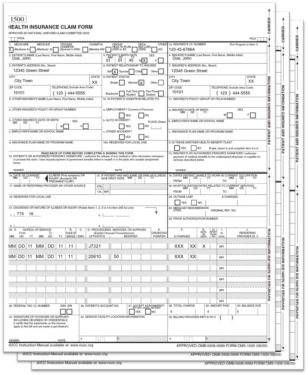
It’s hard to imagine a more mind-numbingly boring topic than billing codes for medical tests … and yet those codes mean the difference between profit and loss to commercial labs, and often the difference between whether patients can get the tests that their providers recommend. Insurers, both public and private, want to limit how much they pay for any particular medical procedure, and so they use CPT codes, developed by the American Medical Association, to streamline billing and reimbursement. However, testing laboratories increasingly “stack” CPT codes to bill for testing that does multiple things, such as a genetic testing panel that tests multiple genes–increasing how much they are reimbursed. GenomeWeb reports that Blue Shield of California, for example, estimates that it overspends on inappropriate or non-covered genetic tests by as much as $40 million per year.
Concert Genetics has now produced a report on this phenomenon, detailing the tremendous variability in both CPT code-stacking and pricing for genetic tests–and one area they specifically report on is prenatal cell-free DNA screening, aka NIPT. Their “Coding Engine” found over 650 distinct CPT code combinations being used in billing for NIPT, leading to billing for NIPT that varies by as much as $900.
Concert’s big idea is that their Coding Engine can streamline the coding process for labs, limiting coding variability (and likely also some higher reimbursements) but making reimbursement as a whole more reliable and efficient. Free to labs, the Coding Engine would charge a subscription fee to insurers, with the promise of significant cost savings. Concert also hopes this increased efficiency will increase access for patients, whose insurers may be slow to reimburse for needed genetic testing, or may refuse test coverage altogether (especially for panels that test multiple genes) because of billing confusion. It remains to be seen whether labs will sign on for what GenomeWeb notes are “the long-term, systemic gains of a more predictable coding system over short-term pricing gains.”
